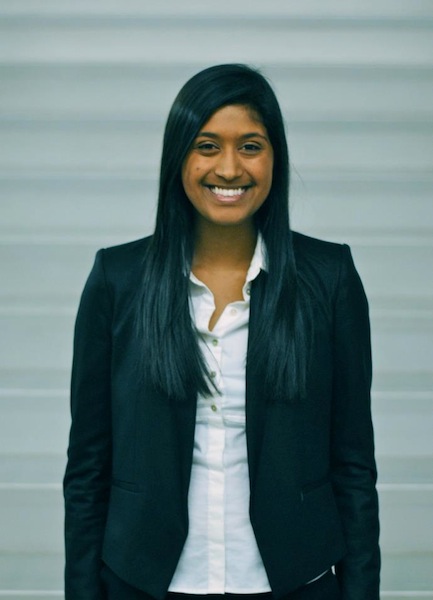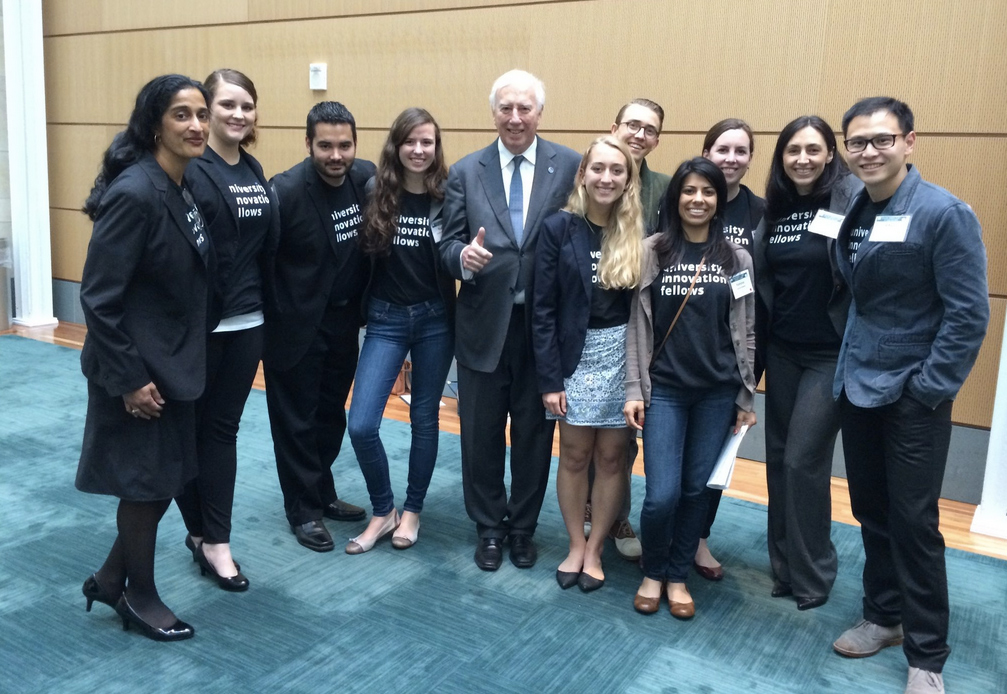UI Fellows Commit to Advancing the National Academy of Engineering’s 14 Grand Challenges
From April 29 – May 1, ten University Innovation Fellows (UI Fellows) were invited to attend the Educating Engineers to Meet the Grand Challenges’ Conference held at the National Academy of Engineering (NAE) to lend a student perspective in discussing how to better integrate innovation & entrepreneurship, interdisciplinary project-based work, service learning, global perspectives and research related to the 14 Grand Challenges identified by the NAE. UI Fellows made statements of commitment to advancing this on their campus; to hear their commitments, you can view this video. This is one of ten posts continuing the conversation about how they will achieve their commitments to their campus.

Megna Saha is one of three University Innovation Fellows at Georgia Tech. She is a 4th year Biomedical Engineering Major and a Pre-health and Computer Science minor. For more on Megna, read her bio here.
By Megna Saha, Biomedical Engineering major with a Pre-Health and Computer Science minor, Georgia Institute of Technology (Georgia Tech).
Reflecting on my commitment to the collaboration of entrepreneurship and innovation throughout all majors at Georgia Tech, I realized my whole institution is committed to this. This past week at the NAE Grand Challenges Workshop, we explored the pillars of engineering education and what it meant to prepare engineers to take on the grand challenges of the world. The resources and faculty support are here at Georgia Tech; the time is now to utilize them for multidisciplinary collaboration.
Our metric for success will be the engagement that students have to these resources. Currently, a design incubator open to all majors is being created with the mission to expand the footprint for innovation at Georgia Tech by implementing a multidisciplinary center for research and collaboration by bringing together facilities, curriculum, people, and outreach to the Atlanta community.
A space is not enough though; it is a creative, innovative mindset that the University Innovation Fellows are trying to establish at Georgia Tech. We believe GT students can change the world. Our campus offers many resources, and even better faculty, to help innovation and creativity on campus. We need to connect the GT community by creating an umbrella organization to help students flow toward these resources on campus, and create channels for student-faculty relationships.
Our program will exist to foster a passion and create sustainability for innovation and entrepreneurship (I&E) among all members of the Georgia Tech community. Through the University Innovation Council, students and faculty will be able to grow the I&E movement on campus together, as well as facilitate other movements going forward. This means that they will become more reliant on, and trusting of, each other, and whatever their major might be. If both students and faculty are invested in the same issue and working together to make change happen, Georgia Tech’s campus landscape in I&E will continue to grow in the future, which will only perpetuate the success of the I&E campus and further interdisciplinary connections.
UIF Fellows, Georgia Tech
Rachel Ford, Alex Flohr, and Megna Saha


